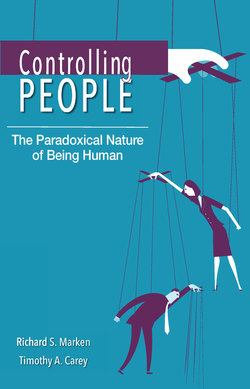Описание книги
“We need to strive for a world where people control what is important to themselves while minimizing the controlling of others.”
We are all controlling people. In fact our feelings of wellbeing depend on staying in control. Just as when we drive a car, we must stay in control in everyday life in order to keep the things we care about going in the right direction.
Yet this natural controlling behavior is sometimes the very reason we end up losing control. This happens when we try to control other people as well as when we try to control ourselves.
So how do we do better? Based on Perceptual Control Theory (PCT), this entertaining and enlightening book by psychologists Richard S. Marken and Timothy A. Carey explores the paradox of why we often lose control by trying to be in control and why our controlling nature makes it difficult to stop this self-defeating behavior. They show that understanding PCT opens the window to understanding and learning about ourselves as controlling people and equips us to lead more effective and satisfying lives.
We are all controlling people. In fact our feelings of wellbeing depend on staying in control. Just as when we drive a car, we must stay in control in everyday life in order to keep the things we care about going in the right direction.
Yet this natural controlling behavior is sometimes the very reason we end up losing control. This happens when we try to control other people as well as when we try to control ourselves.
So how do we do better? Based on Perceptual Control Theory (PCT), this entertaining and enlightening book by psychologists Richard S. Marken and Timothy A. Carey explores the paradox of why we often lose control by trying to be in control and why our controlling nature makes it difficult to stop this self-defeating behavior. They show that understanding PCT opens the window to understanding and learning about ourselves as controlling people and equips us to lead more effective and satisfying lives.
